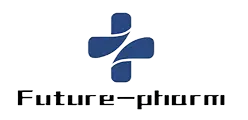
How to Effectively Source and Manage Pharma Material for Your Business Success
In the rapidly evolving pharmaceutical industry, the effective sourcing and management of pharma material is critical to ensuring business success. According to a report by the IQVIA Institute for Human Data Science, global spending on pharmaceuticals is projected to reach $1.5 trillion by 2023, highlighting the increasing demand for quality materials in drug development and production. As manufacturers face rising pressures to enhance efficiency and maintain compliance with stringent regulations, the importance of a robust supply chain for pharma material cannot be overstated. In fact, 65% of pharmaceutical executives identified supply chain disruptions as a significant threat to their operations, underscoring the need for strategic sourcing solutions. By adopting best practices in material management, companies can not only mitigate risks but also drive innovation and improve patient outcomes in an increasingly competitive marketplace.

Understanding the Importance of Pharma Materials in Business Success
The pharmaceutical industry thrives on the efficient sourcing and management of materials, which play a crucial role in business success. According to a report by Grand View Research, the global pharmaceutical excipients market is projected to reach USD 7.4 billion by 2026, highlighting the increasing demand for quality materials. These excipients, along with active pharmaceutical ingredients (APIs), form the backbone of drug formulation and efficacy. Companies that prioritize the procurement of high-quality pharma materials tend to maintain competitive advantages and enhance product reliability.

Moreover, effective management of these materials is essential for minimizing production costs and ensuring compliance with regulatory standards. A survey conducted by McKinsey & Company revealed that pharmaceutical companies can reduce their supply chain costs by up to 20% through improved material management strategies. Focusing on sustainable sourcing practices also contributes to long-term business viability; a report by Deloitte indicates that companies with strong sustainability frameworks experience 30% higher efficiency in their operations. This confluence of quality, cost-efficiency, and sustainability ultimately underscores the importance of pharmaceutical materials in achieving business success.
Identifying Reliable Suppliers for Pharmaceutical Raw Materials
Identifying reliable suppliers for pharmaceutical raw materials is paramount for maintaining the integrity and efficacy of pharmaceutical products. According to a report by the IMS Institute for Healthcare Informatics, the global pharmaceutical market reached $1.42 trillion in 2021, emphasizing the necessity for robust supply chains. Sourcing from reputable suppliers can mitigate risks associated with material quality, compliance with regulations, and ultimately the safety of end products.
Engaging with suppliers that have certifications such as ISO 9001 and Good Manufacturing Practices (GMP) ensures that the raw materials meet stringent industry standards.
In addition to certifications, it's crucial to evaluate supplier performance metrics such as on-time delivery rates and defect rates. A study published by McKinsey & Company reveals that companies that actively manage their supply chains can achieve a 15%-20% reduction in operational costs. Utilizing technological tools like supplier scorecards can help in tracking these metrics effectively.
Engaging in long-term partnerships with suppliers who demonstrate consistency and reliability not only fosters trust but also contributes to the overall success and sustainability of a pharmaceutical business.
Evaluating Quality Standards and Compliance in Pharma Sourcing
In the ever-evolving landscape of pharmaceutical sourcing, evaluating quality standards and compliance is paramount, especially when serving low to middle-income countries. The globalization of pharmaceutical production has led to significant concerns about the quality of medicines supplied to these markets. Reports highlight a troubling trend where substandard products are packaged attractively, obscuring their potential dangers. This underscores the urgent need for rigorous quality assurance protocols and collaboration among international and national procurement agencies to maintain high standards.
Moreover, leveraging real-world data can provide critical insights into the effectiveness and safety of pharmaceutical products. Enhanced data governance and innovative quality management strategies can streamline the R&D process, ensuring that only products that meet strict quality benchmarks are brought to market. As companies seek to find reliable manufacturers or suppliers, understanding and implementing comprehensive contamination control strategies and adhering to regulatory compliance will be vital to ensuring product safety and efficacy. These measures will ultimately enhance the reputation and success of businesses in the competitive pharmaceutical landscape.
Quality Standards Evaluation in Pharma Sourcing
Strategies for Cost-Effective Management of Pharma Inventory
Effective management of pharmaceutical inventory is crucial for business success, especially given the industry's constant fluctuations and challenges. According to a report by Deloitte, improper inventory management can lead to a staggering 20% increase in operational costs, which significantly impacts profitability. Companies can mitigate these costs by adopting technology-driven strategies that streamline inventory processes and enhance accuracy in stock management.
One effective approach is to implement an automated inventory management system. This technology not only provides real-time insights into stock levels but also forecasts demand fluctuations based on historical data. As reported by McKinsey, businesses that utilize advanced analytics for inventory management can reduce excess stock by up to 30%.
**Tips**: Regularly reassess your inventory turnover ratios to identify slow-moving products. Additionally, establish strong relationships with suppliers to ensure efficient reorder processes, thereby minimizing the risk of stockouts or overstock situations.
Building a robust supply chain network is another key strategy. By utilizing just-in-time (JIT) delivery systems, organizations can maintain lean inventories while still meeting customer demand. The World Health Organization emphasizes that efficient supply chain practices not only improve cost-effectiveness but also enhance service levels to customers.
**Tips**: Schedule periodic reviews of your supply chain partnerships and adopt flexible contracts that accommodate changes in demand or supply disruptions.
How to Effectively Source and Manage Pharma Material for Your Business Success - Strategies for Cost-Effective Management of Pharma Inventory
| Material Type | Supplier Quality Rating | Cost per Unit | Lead Time (Days) | Current Inventory Level | Reorder Point |
|---|---|---|---|---|---|
| Active Pharmaceutical Ingredient (API) | 4.5/5 | $120 | 14 | 500 units | 300 units |
| Excipients | 4.0/5 | $30 | 7 | 1000 units | 600 units |
| Packaging Materials | 4.7/5 | $15 | 5 | 2000 units | 1000 units |
| Clinical Trial Supplies | 4.3/5 | $45 | 10 | 800 units | 500 units |
| Laboratory Chemicals | 4.6/5 | $60 | 8 | 300 units | 200 units |
Building Strong Relationships with Pharma Suppliers for Long-term Success
 Building strong relationships with pharma suppliers is essential for ensuring the long-term success of any business in the pharmaceutical industry. Trust and communication serve as the foundation of these partnerships. By establishing clear lines of communication, businesses can address issues promptly, negotiate better terms, and ensure that both parties are aligned in terms of goals and expectations. Regular meetings and updates can help to foster a collaborative environment, where suppliers feel valued and engaged in the success of the business.
Building strong relationships with pharma suppliers is essential for ensuring the long-term success of any business in the pharmaceutical industry. Trust and communication serve as the foundation of these partnerships. By establishing clear lines of communication, businesses can address issues promptly, negotiate better terms, and ensure that both parties are aligned in terms of goals and expectations. Regular meetings and updates can help to foster a collaborative environment, where suppliers feel valued and engaged in the success of the business.
Moreover, investing in supplier relationships can lead to innovative solutions and improved efficiency. Suppliers who understand the unique needs and challenges of their clients are more likely to offer tailored services and products that enhance overall operational effectiveness. Collaborative efforts can also promote shared knowledge and expertise, which can drive advancements in product development and supply chain management. By prioritizing these relationships, businesses not only benefit from reliable supply channels but also position themselves to adapt and thrive in an ever-evolving market landscape.
Related Posts
-

Navigating Issues with Sourcing Best Pharmaceutical Chemical Powder in a Competitive Market
-

Discovering Reliable Supply Chains for Drug Raw Materials in a Competitive Global Market
-

How to Select the Right Pharmaceutical Chemicals for Your Manufacturing Process
-

Emerging Drug Raw Material Technologies Shaping the Pharmaceutical Landscape by 2025
-

10 Key Tips for Sourcing the Best Raw Pharmaceutical Ingredients Globally
-

Unlocking the Future of Healthcare with Innovative Pharmaceutical Materials
